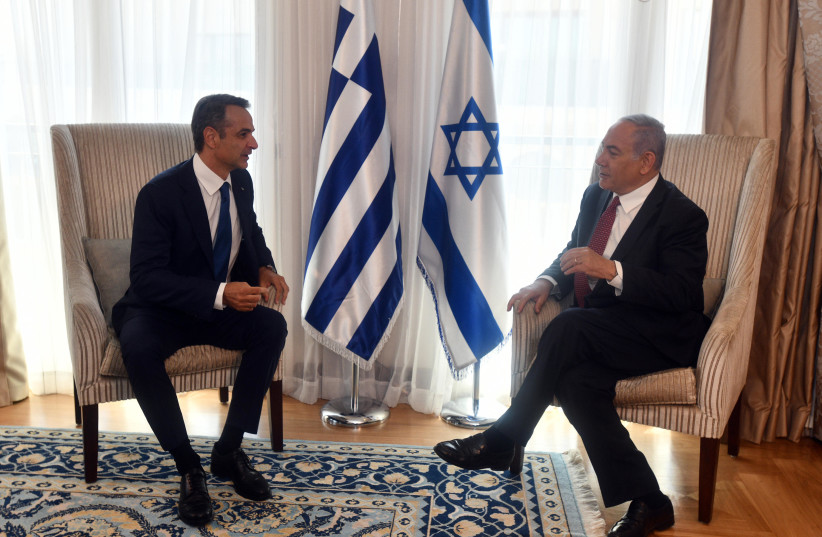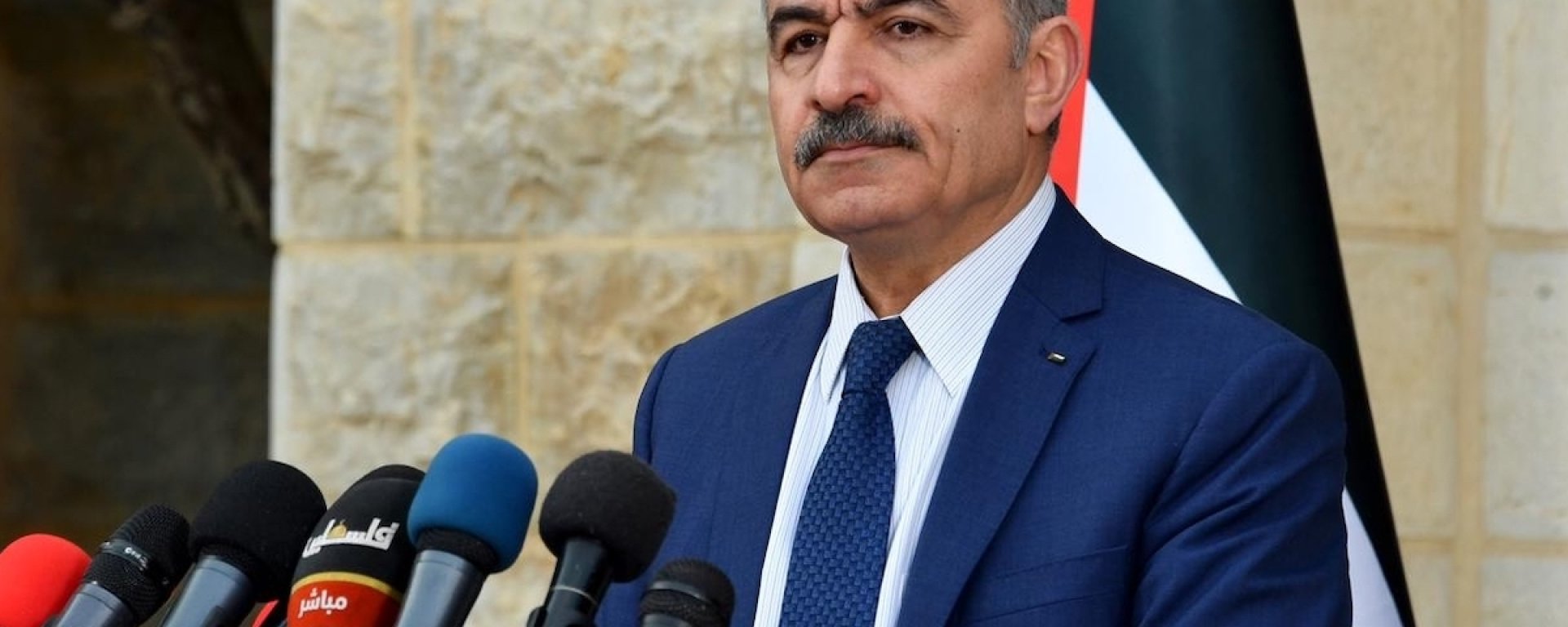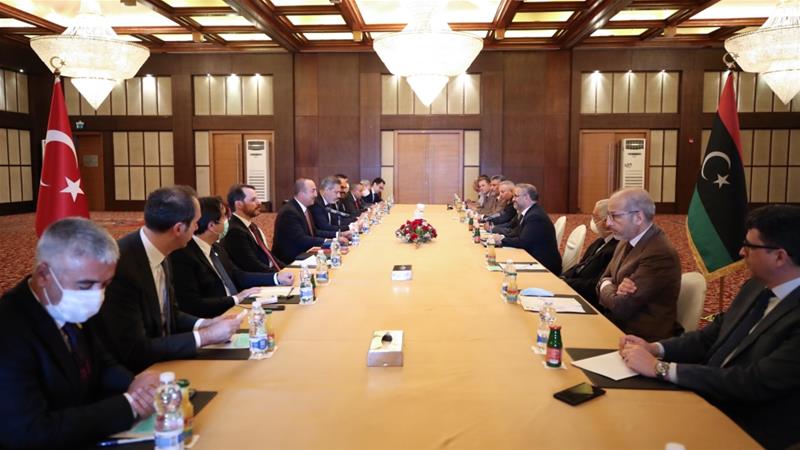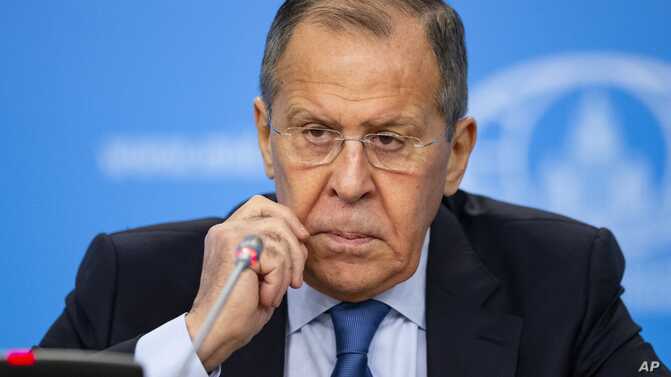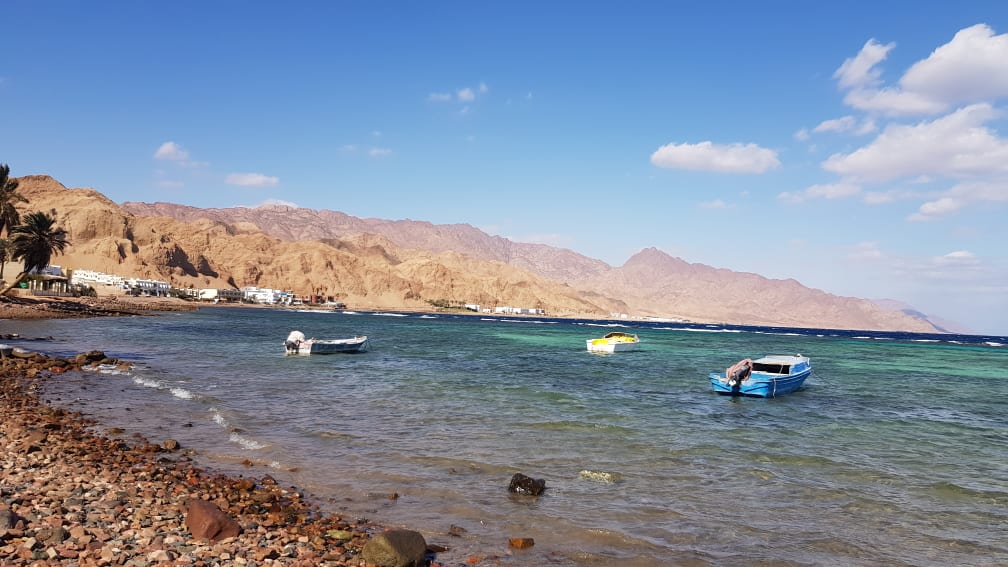Greek Prime Minister Kyriakos Mitsotakis, flanked by six ministers, touched down in Tel Aviv airport Tuesday morning for a high-level visit to Israel.
The Greek PM’s first port of call was a meeting with his Israeli counterpart Prime Minister Benjamin Netanyahu. The pair discussed how to get Greek-Israeli tourism back on track post-COVID-19.
After the meeting, Netanyahu announced Israel will aim to allow tourists to return from Greece and Cyprus to Israel without going through quarantine from August 1. The exact start date will, however, depend on the COVID-19 situation in the countries concerned.
“Over a million Israelis go to Greece every year,” Netanyahu said in a press conference after the meeting on June 16. “This is an expression of Israelis’ love for Greece.”
Ahead of the meeting, Mitsotakis said he was confident Israel-Greece flights would soon resume, and said in the press conference, “We are working hard to ensure tourists are safe.”
Greece is heavily reliant on external visitation, with tourism accounting for approximately 25-30% of the country’s GDP, and is working to sell itself as a safe post-COVID-19 tourism destination.
“A lot will depend on whether people feel comfortable to travel and whether we can project Greece as a safe destination,” Mitsotakis acknowledged.
Tourism, annexation, and energy
While there is no doubt Greece and Cyprus are top tourism destinations for Israeli travelers, it appears Netanyahu’s willingness to restart tourism is more about winning Greek support for its annexation plans currently causing friction with the European Union.
The EU says Israel’s West Bank and Jordan Valley annexation plans cannot “pass unchallenged,” while the US accepts them under President Donald Trump’s “Deal of the Century” Middle East peace plan.
“We expect Greece to be an anchor of support for us in the [European] Union,” Israel’s Ambassador to Athens, Yossi Amrani, told Israel’s Army Radio on Monday ahead of the Greek Prime Minister’s visit.
Other diplomatic sources told the Jerusalem Post that Israel does not expect Greece to change its position on annexation, but may help to soften the EU’s attitude towards Israel and block proposed economic sanctions.
“Greece is not militant and we expect them to help us,” the anonymous diplomatic source said. “We want the EU to have a dialogue with us and not sanctions or declarations threatening to punish us.”
In addition to annexation and the peace plan, Israel’s agenda for the fourth Israeli-Greek meeting includes “energy and the EastMed [gas pipeline]” and “stability in the Middle East with an emphasis on Iran and Lebanon,” Foreign Ministry spokesman Iris Ambor said on Monday.
Greek priorities
For his part, the Greek PM is keen to discuss Turkish aggression in the Mediterranean, which he labeled “blatant provocations.”
“We discussed this matter extensively,” Mitsotakis told the media after his Tuesday morning meeting with Netanyahu. “We discussed the instability Turkey is causing, including in its actions in Libya.”
Turkey is also a diplomatic thorn-in-the-side and security threat to Greek-Israeli-Cypriot energy cooperation on projects like the EastMed pipeline.
In December 2019, Ankara concluded a maritime agreement with Libya’s Government of National Accord, which it backs militarily in the Libyan civil war, enabling it to lay claim to a massive swathe of the Eastern Mediterranean. The claim totally ignores established Greek and Cypriot territorial claims, but Turkey maintains the move is within its rights.
Greece has vocally opposed long-time foe Turkey’s hostile territory grab and defended the EastMed cooperation, stating it “is not directed against nor exclusive of anyone.”
“Turkey is welcome to give up on its imperialistic pipeline dreams and cooperate with us as an equal and law-abiding partners – not as the neighborhood bully,” Mitsotakis told Israeli newspaper Yedioth Ahronoth on Tuesday.
The Greek delegation includes the ministers for defense, foreign affairs, tourism, energy, environmental protection and water, and development and investments.
Israel’s Alternate Prime Minister and Defense Minister Benny Gantz and Greek contemporary Nikolaos Panagiotopoulos have been in talks over defense cooperation. Meanwhile, Israeli Foreign Minister Gabi Ashkenazi and Greek FM Nikos Dendias signed off on agreements to increase cybersecurity, energy, agriculture, and tourism cooperation.
Read also: Israel’s Supreme Court Strikes Down Law to Legalize Settlements

